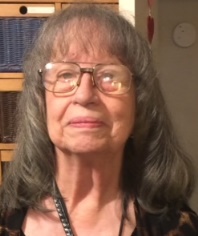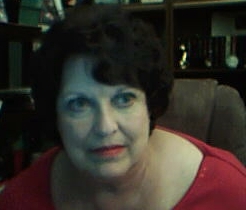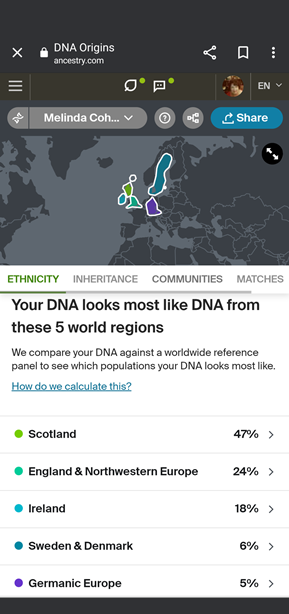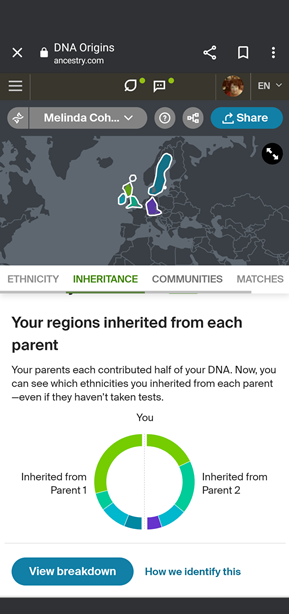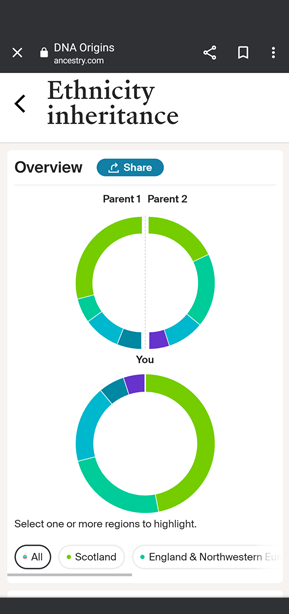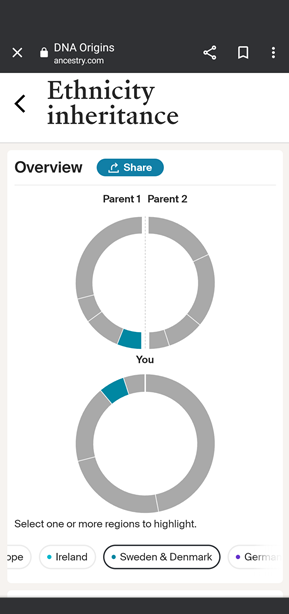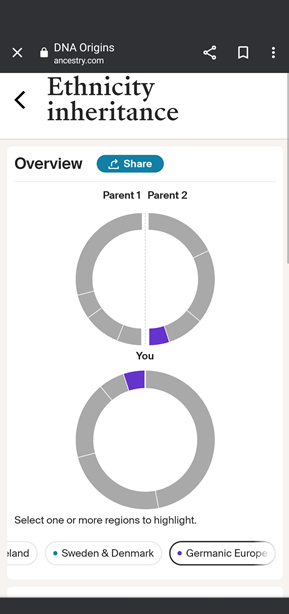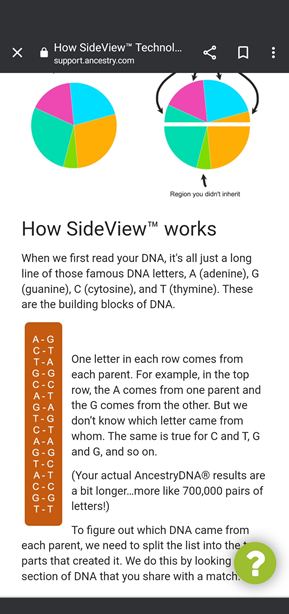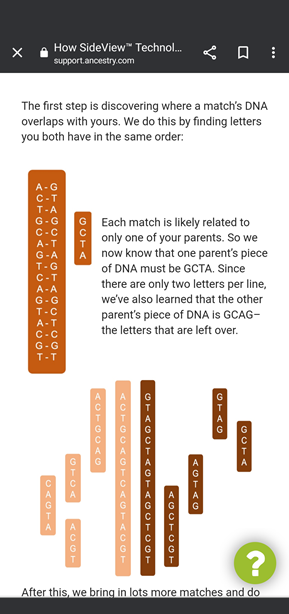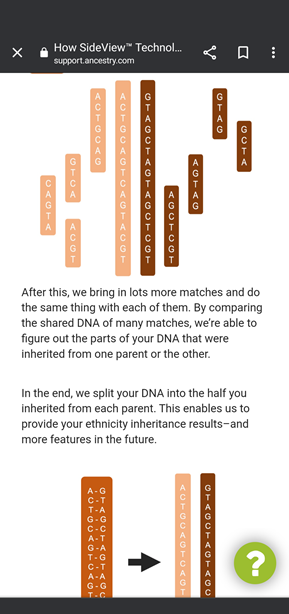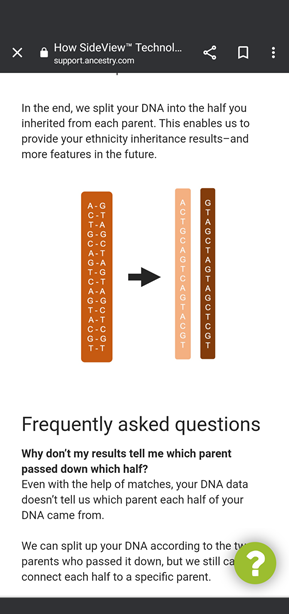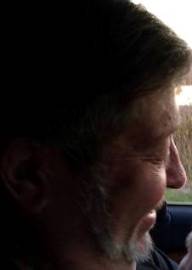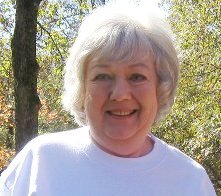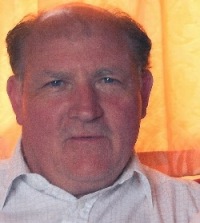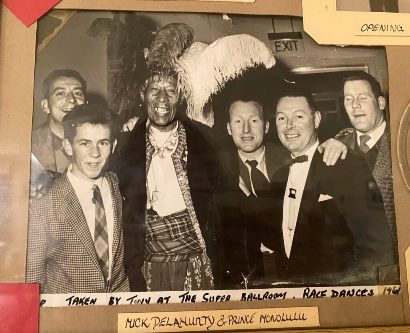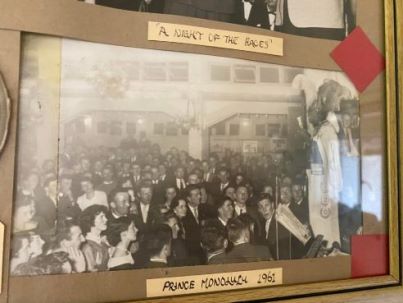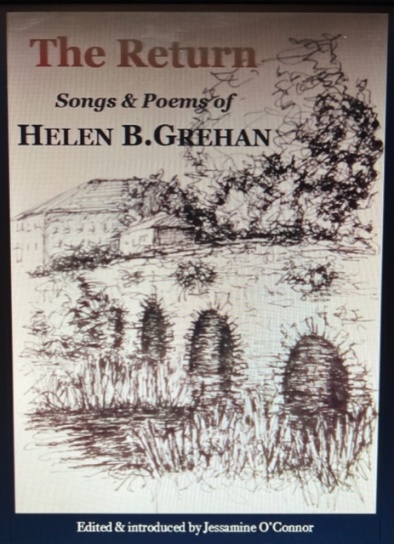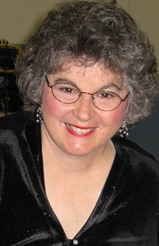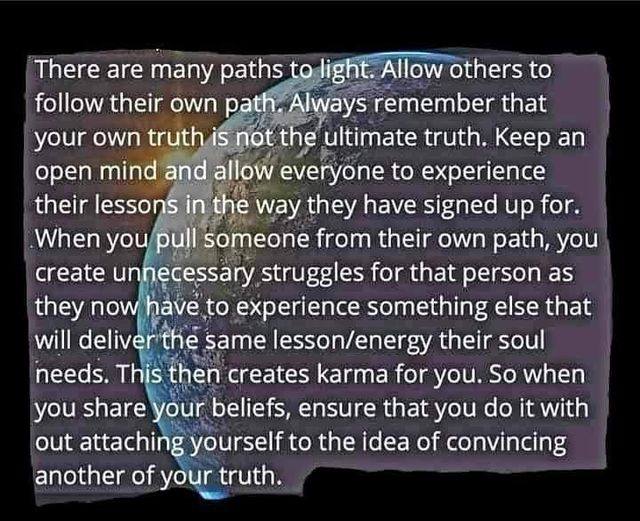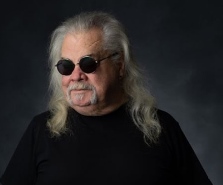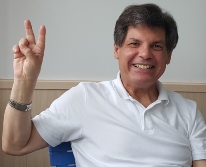
By
Thomas F. O'Neill
This story is dedicated
to the memory of a very kind and generous soul:
Henry Zale
1917 - 2010
The Coffee Shop
There comes a time in our life when we must face who we truly are in
relation to others. We go through our daily routine, day after day, year
after year, without ever taking the time to sit back and visit
ourselves in order to get to know ourselves better. Megan was no
exception; she worked as a bank teller for fifteen years in her
hometown. It was simply a job for her; it was what she did for a living.
She didn’t particularly hate her job, but she didn’t particularly enjoy
her career either.
She saw many of her co-workers over the years come and go due to
the low pay and lack of appreciation, but she stayed. The bank manager
liked her work and recognized that she was a trustworthy and good
employee. However, her co-workers had difficulty getting to know her due
to her shyness and her being extremely introverted.
She only lived a few blocks away from the Bank, which was
convenient for her due to her not owning a vehicle. In the years that
she worked there, she never invited anyone to her home, which the other
bank-tellers found peculiar. She lived in a guesthouse that a prominent
medical Doctor owned. Her home had no television, radio, or computer.
She had a phone in case her boss needed to get a hold of her, but she
never received any phone calls. Her job seemed to be the only contact
she had with the outside world. She never missed a day’s work in the
fifteen years she worked at the Bank, and she never took a vacation. Her
co-workers found that odd, and the fact that she had never gone to see a
movie or even rented one was just downright weird in their minds.
Dr. Bender’s guesthouse had a large antique mahogany table in the
living room. The table was there when Megan moved into the place with
all the other antique furniture. The furniture was old but quite
beautiful. There are beautiful hardwood floors and molding in the house.
Her living room had a large fireplace, and at night she liked to burn
wood so that she could hear the crackling sounds of the wood-burning.
She also enjoyed watching the warm glow of the flames. Over the
fireplace was a large painting painted in 1927 by an artist who was a
friend of Dr. Bender’s aunt. The Doctor’s aunt once occupied the
guesthouse, and the artist painted her lying on a couch nude. There was a
grand piano in one corner of the living room that Megan’s parents once
owned. The other rooms in the house had walls and walls of bookshelves
filled with the books that Megan had read over the years. When she ran
out of room for the bookshelves, she plopped the books on the large
Mahogany table in her living room. She never got rid of her books. They
were more valuable to her than any other possession.
Her books have taken her to faraway places away from her hometown
and to Exotic places where she met interesting people and got to know
exciting characters. Those books had become her solace and what she
lived for; she read to the wee hours of the morning, and she would dream
about the things she had read when she went to sleep.
Her life had a daily routine; she got up at seven and went
through her morning ritual. She would skip breakfast, go to work, and
then skip lunch. After work, she would go to ‘The ‘King Kruller Coffee
Shop’ across the street from the Bank. She would order a large cup of
their homemade soup. One of the Coffee Shop owners brings in the soup
each morning to serve the customers in the afternoon. She would then
order a large cup of coffee and read until closing time, with the
exception of a few Doctor’s appointments, or an occasional funeral; that
was her daily schedule.
The people she worked with saw a quiet and calm demeanor about
her. On the other hand, she felt that something was lacking within her.
She felt a deep void; it was like she had a hollow space deep inside
her. She was never able to find the words to adequately describe what
she felt or what she was going through daily. She went from, day to day,
year to year, feeling that she was set apart from others like a
spectator looking at the universe from the outside.
She believed that her feelings of isolation were due to the fact
that she was her parent’s only child. When she was young she never
played with other children. Her parents, home-schooled her up to the age
of fourteen. Her parents enrolled her in the local high school when she
turned fourteen. She felt awkward in school, never quite fitting in
with her classmates. She always felt lonely, and depressed. She was
never really tuned in to the teenage fads, their slang words, or their
clothing fashions. The other students pretty much shunned her. Her high
school years were an extremely difficult and painful time in her life.
Her memories of those years are always with her. The clothing she wore
in school seemed a decade behind the times. Her parents did not allow
her to watch television or listen to the radio. They felt it would
interfere with her disciplined curriculum of education.
When she was born, her parents put their daughter on a course of
what they believed was a moral and virtuous upbringing. She was not
allowed to go to the movies or on dates; instead, her parents encouraged
her to read classic masterpieces. They taught her how to play the
piano. She enjoyed listening to the classical piano pieces on an old
record player. That was the only music her parents approved of, and
eventually, she mastered those classical arrangements on the piano. She
was a highly gifted and intelligent child, but she had this deep-seated
resentment towards her parents for not allowing her talents to grow and
flourish.
When she was a senior in high school, the principal came into one
of her classes and accompanied her to his office. He informed her that
her parents were killed in a tragic car accident. She can recall those
memories of that painful and dreadful year. When she came back to school
after the funeral of both her parents none of her classmates came to
console her or offer their condolences. Her classmates never even came
to her parents funeral. Her last year in high school was certainly a
painful time for her, and that was the same year that reality came and
showed its face to her. Her parents death also delivered her in some way
because she never quite got over the resentment she had towards them.
She always blamed them for her deep feelings of inadequacy.
A friend of her father was a ‘Dr. Bender’ a prominent medical
Doctor who took Megan into his home. He eventually allowed her to use
his guesthouse. He took a great liking to her; he admired her maturity
for a young lady. He was attracted to her keen intellect and calm
demeanor, and she, in turn, enjoyed playing the piano for him. When the
Doctor’s wife died, Megan went over to the main house, and they would
sit in his living room and talk for hours. He cared for her deeply and
took a great interest in her future and wellbeing. She eventually sold
her parents home and remained in the guesthouse. She used the money from
the sale to continue her education. She earned a bachelor's degree in
Business Administration at a nearby community college. She eventually
found employment at a local bank a few blocks away from where she was
living.
Dr. Bender had no children, and he treated Megan as if she were
his daughter. When he passed away, Megan took his death hard. She
grieved harder than when she lost both her parents at eighteen. In the
short time that she knew Dr. Bender, she felt closer to him than she
ever had to her parents. When the Doctor died, his nephew became the
trustee of his uncle’s estate. The nephew, a New York City investor was
instructed to put a small percentage of the interest earned from his
uncle’s investments into a trust fund for Megan.
Her frugal lifestyle amounted to a nice nest egg that Dr,
Bender’s nephew reinvested for her. She also worked out a deal with him
to rent to own the guesthouse, including all the contents in the house.
She did not have to work, because the return on her investments could
have given her a relatively comfortable life.
However, she continued her employment with the Bank and rarely
thought about the investments that were made for her. She has the money
to travel the world, but she continued to live as before and rarely left
her hometown. Dr. Bender’s nephew perceived Megan’s frugal lifestyle
and her continued employment as deep-seated insecurity on her part. He
told her that she could move to a better town or city with better
opportunities. On the other hand, she had no intention of leaving her
hometown or the guesthouse for that matter.
The town she lives in has a population of about five thousand
people. The town is extremely depressed due to a lack of jobs and
resources. Forty-four percent of the population is made up of senior
citizens. The average income is about seventeen thousand a year, and
most people live on public assistance. The cost of living in her town is
relatively low compared to the national average due to the town’s
poverty. Poverty is pretty extreme. It has resulted in crime going up
and drug use among the youth. There is nothing for teenagers to do or
go. They congregate on the main street and litter the sidewalks; they
have little respect for the town. That lack of respect is due to them
being ignored by the adult population. The teenagers feel they don’t
have a voice, resulting in a rise in juvenile crimes. Their perception
of the town is that it has evolved to a town of senior citizens.
The main street has a lot of dollar stores and restaurants. There
is also a Barber Shop, a boutique, and a few antique stores. The
restaurants attract people from the neighboring towns to visit and eat
in the town. Megan enjoys ‘the King Kruller Coffee shop’ across the
street from the Bank even though she can well afford to eat anyplace
else. She enjoys their homemade soup and coffee. She rarely thought
about the town's problems in the years that she worked at the Bank. She
was able to get away and escape her environment by reading for hours on
end.
* * * * *
“It is just a job,” Megan thought to herself as she walked across the
street to the Coffee Shop. The Coffee Shop has its regulars, mostly
retirees, the senior citizens' crowd, and they gossip daily about the
daily happenings in the town and their controversial mayor.
Megan likes to go to the coffee shop after work and read the
Newspaper, cover to cover. She never really got into the town's gossip,
and she just sits in a booth with her nose in the Newspaper or a book.
“Hands-on the table, Artey,” said an elderly woman in the booth
in front of her. The woman was talking to an elderly gentleman in the
same booth. “Artey, hands on the table,” she said once again in a stern
voice. The elderly gentleman teased the woman by putting his hands on
her leg.
Megan noticed that there were many more people in the Coffee Shop
that day than normal. She then saw an elderly man walk into the coffee
shop carrying a guitar. He was followed by a woman carrying a large cake
and behind her a woman carrying balloons with ‘Happy Birthday Artey’ on
them. The cake had a picture taken in 1921 of a little boy sitting on a
Pony.
Megan found herself sitting in the middle of a surprise party for
a man who had just turned ninety years old. The man with the guitar
began to sing old songs to Artey. A while later, Artey began to sing a
song that he wrote many years ago to one of the young female owners.
Afterward, he gave her a big kiss, and to Megan’s surprise, Artey sat
down in her booth.
“Happy Birthday,” Megan said to him. “That was such a beautiful song you sang, and I never heard it before.”
“I wrote that song seventy-two years ago for my wife,” he said.
“Is your wife here?” she asked.
“She passed away two years ago; we were married sixty-eight years
when she died. I wish she could be here to see this,” he said.
“So, how old are you?” she asked
“Ninety, today.”
“If I ever live to be ninety, I hope I am in good a shape as you,” she said.
“I see you in here every day reading. Are you in school?” he asked.
“Oh, no, I just like to read. I read everything; that is what I like to do.”
“What do you do?” he asked her.
“You mean for a living? I’m a bank teller across the street.”
“I have an account there,” he said
“I see you go in there, I've been working there a little over Fifteen years. What did you do?” she asked him.
“Well, I am retired now.”
“I figured that you being ninety and all,” she said, laughing.
“You don’t think I can’t go back to work?” he said with a smile.
“I was a Teacher, then a Principle, and then the Superintendent of the
local School District. I once coached midget football, and you know who
my tight-end was on the football team.”
“Who?” she asked with curiosity in her voice.
“Abe Lincoln,” he said with a straight face.
“Really,” she said, laughing. “You are pretty old.”
“You live here in town?” he asked her.
“I bought Doctor Bender’s old guesthouse.”
“I have been in there years ago. That is such a beautiful place,
especially the fireplace and the hardwood. I love the hardwood floors
and molding.” He said.
“That is why I bought the place. Plus, it is tranquil there.”
“Are you married and have kids?” he asked in a small talk kind of way.
“Happy birthday, Artey,” said a woman with a Birthday card. Artey
stood up and gave her a big kiss. When Artey sat back down in the
booth, the woman asked, “is that your Daughter, Artey?”
“No Daughters, I have three Sons, and I was told they will be here shortly; they are taking me out for dinner.”
“I was never married, Artey, and no kids,” Megan told him after
the other woman walked away. More people began to walk into the Coffee
Shop holding cards. “You have a lot of friends, Artey.”
“I have been coming in here for a long time,” he said.
“Happy Birthday, Artey,” a man said to him.
“Well, thank you, young fella,” Artey said while getting up and
giving the guy a big hug. People began posing with Artey for pictures,
and some took pictures of the birthday cake that had a picture of Artey
on it that was taken in 1921 when he was a little boy sitting on a Pony.
“1921... that was a long time ago, Artey” Megan said.
“I have a picture of my wife sitting on the same Pony when she was a little girl, believe it or not,” he told her.
“So the Pony brought you guys together,” she said laughing.
“I didn’t see her picture on the Pony until after we were
married. Her mother had the picture. There was a photographer that used
to go around town with that Pony. When I was a child, he would take
pictures of kids on it. He would then ask the kids where they lived.
After the pictures were developed he would knock on their door and sell
the pictures to their parents. Who can resist a picture of their child
on a Pony?”
“I don’t think that would work today,” she said laughing.
“God, the town was so much different back then. Over thirty
thousand people were living here. There were ten pool rooms, two bowling
alleys, and four movie theaters. I watched Rudolph Valentino in the
silent movies at the Lyric Theater. This little Italian guy played an
organ for the sound effects. I remember listening to the radio after
Rudolph Valentino died, and they played this recording of an interview
he gave. This high squeaky Italian accented voice came over the radio. I
remember my sister and mother staring at the radio in shock, not
because the poor fellow died but because of what he sounded like on the
radio. I don’t think he would have made it in the talkies,” he said.
“When I was your age, this town had plenty of stores and restaurants,
and there were four bars on every block. You couldn’t visit all the bars
in one night because back then, there were a hundred and ninety-two
bars in this town. Now there is only a few left.”
“I would love to have lived back then and seen the town the way
it was. I am so glad I got to talk to you, Artey.” When more people came
into the Coffee Shop, Megan once again wished him a happy birthday and
left.
The next day as she was reading in one of the booths, she
wondered how one person such as Artey could have so many friends in her
hometown. In the booth in front of her, she heard four elderly women
gossiping about various things and people, and once again, the topic of
discussion came to the town’s mayor.
“Why don’t they just leave him alone; the poor guy is getting
picked on,” said one of the women. Being oblivious to the gossip and the
town’s politics, Megan kept her nose in her book.
When Megan got up to buy another cup of coffee, she noticed a man
sitting with Arty in one of the booths. She also noticed that Artey had
a concerned look on his face. She heard the man say, “well, take care,
Artey.” When the man got up and left, Megan went over and sat down in
Artey’s booth.
“Well, hello there, young lady,” he said to her.
“How did your Dinner go last night?”
“Great,” he said.
“Was that your son you were talking to?” she asked.
“Oh, no, that was the Mayor’s son. He is going to run against the Mayor in the next election,” he said.
“I really don’t follow politics. Who is he running against?” she asked.
“His Father.”
“His father is the Mayor, and he is going to run against his
father. That would certainly make for a funny election. I should pay
more attention to the town’s politics,” she said, slightly amused.
“They both have the same name!!!!” he said, “an election like
that will make this town a huge joke in the papers and on TV,” he said
to her in a very concerned voice, “I think he is making a big mistake.”
“Who are you going to vote for,” she said laughing.
“That is how everyone is going to take the election as a big joke,” he said.
“So Artey what do you do when you're not here?” she asked him to change the subject and lighten his mood.
“I go to the Lyric Restaurant and Bar for a few beers in the
evening. When I get up in the morning, I go to the Veterans center for
breakfast. I come here in the afternoon. I write letters to people
during the day and a letter to my wife every day.” He said in a
matter-of-fact way.
“I think that is so sweet that you write your wife letters.”
“I used to write her every day when she was alive. I communicate
better when I write sometimes. But, I show my affection better
physically,” a smile came over his face, “we all communicate
differently. You have to get to know the person, find their humor, and
communicate in a way that they will enjoy your company.”
“You have a great sense of humor,” she said, “I wish I could be
outgoing and make friends like you. It is so hard for me to communicate
with people, and making friends with people is difficult for me, and I
have difficulty just opening up to people.”
“I had a male student like you; he is very quiet, reserved,
introverted, and like you, he reads everything. He is extremely
intelligent, he was not a very good athlete in school, and he is a very
bad speller. But, his atrocious spelling did not interfere with his
remarkable writing.” He looked at her intently and gently placed his
hand on her hand, “Extremely gifted,” he said, “he almost let his lack
of spelling prevent him from expressing himself through the written
word,” he then looked into her eyes, “he went on to win numerous writing
awards. He told me that writing is where he found his solace in life,
and it is his way of baring his soul to the reader.”
“I could never write like that! I don’t have that kind of talent,” she said.
With a big smile on his face he said to her, “with all that
knowledge and understanding you acquired from all those books? You
should share it with others in your own unique way. Share that gift of
learning and communicate to others who you are and what you know.”
“I haven’t written anything since school,” she said with a smile
in her voice, “I’m not a very good writer, and I wouldn’t know what to
write about. And, besides, who will be interested in reading what I
write.”
“You learned a great deal from what you read, and now you will
learn a great deal more about yourself from what you write. Don’t write
for others. Write for yourself. The greatest writers don’t write to
impress; they write to express. They write about what they know best.
What you know best is yourself. Write in order to learn about yourself.
The more you write, the more you will grow in self-knowledge.”
“I’m not a very good writer,” she said once again.
“The more you write, the more you will sharpen your craft. Find
the time to relax and sit back. Take the time to visit yourself so that
you can get to know yourself better. Then write down what you have
learned.”
Artey leaned back in the booth and began to reminisce about some
of the letters he wrote to his wife. Some of his letters were about his
childhood growing up on East Coal Street. Megan was fascinated by the
town’s history. It was not just the town's history that intrigued her,
it was what Artey experienced in his ninety years.
“I once wrote a letter to my wife about my father’s neighbor,” he
said. “When I was about nine years old, our neighbor had a horse that
he kept tied on his front porch. People complained because our neighbor
only cleaned up the horse's droppings about three times a week, and the
porch stunk really bad. Our other neighbors complained to the Mayor, the
police, the borough council, and nothing was done about it. There was
no ordinance or borough code that our neighbor was violating. There was
no law to prevent a person in our civilized society from having a horse
tied on his front porch. Don’t get me wrong, I liked the horse, and the
horse liked me. I used to give him little sugar cubes at night before I
went to bed. When everyone was in bed, I heard my father going down the
stairs one night. I crept out of bed, and I watched my father untie the
horse. He then slowly opened our neighbor’s door. Back then, no one
locked their doors. He turned the horse in the direction of our
neighbor’s front door and gave the horse a swat on its rear end. The
horse bolted and ran into our neighbor’s house and up their stairs,
scaring the bejesus out of them.”
“What happened after that,” Megan said, laughing.
“That same night, there was a knock on our door. My father came
downstairs wearing his nightcap and nightshirt that went down to his
knees. When he opened the door, a police officer was standing at our
door. The police officer was wearing his cone-shaped hat with a display
badge on it. In broken English and a thick polish accent, my father
said, ‘Yes, what, a, I do?’ The officer said to him, ‘we had a complaint
that someone assaulted your neighbor’s horse.’ My father looked at the
officer in a straight face and said to him, ‘I no assault’ a, horse. I
send horse ‘a home. If horse get’ a mad. I tell’ a you, right a’ way.’
The officer replied, ‘well, if you hear anything, let us know.’ My
father’s reply was, ‘you’ a, hear, no worry.’ After that night, our
neighbor kept his horse tied on his back porch.”
“Did that really happen?” she asked him, laughing out loud.
“Of course, I wouldn’t make that up.” He looked over to her and said in a
soft, sincere voice, “write about something close to your heart that
you know intimately.”
The next day as Megan sat in the coffee shop. She had a tablet
and pen, and she was struggling for words. She realized that the pages
in all the books she had read - flowed and captured her imagination. The
books transported her to different eras and places and into the mind of
the characters she was reading about. Now she was being asked to delve
into her own mind in order to create her own words and ideas.
She began to understand that she read those books in order to
move away from herself. Now she was being asked to turn to the very
person she had been avoiding, and that person just so happened to be
herself. “Why is it so hard for me to write?” she thought, staring at
the tablet. “Is this my life,” she said to herself, “a blank piece of
paper with no words, thoughts, or ideas of my own.” She leaned back and
then got up to buy another cup of coffee.
“Hey, O’Malley!!!!” yelled an elderly woman from one of the
booths. O’Malley, the mayor’s son, was standing at the counter paying
for his coffee. “Why are you guys picking on your father? He’s the
mayor. He’s in charge. Just because you are running against him doesn’t
give you the right to pick on him. Why aren’t you two talking?”
“He stopped talking to me ever since I threw my hat in the Mayoral race,” he yelled over to her.
“Well, that’s not right!!!!” she yelled. “He’s your father, and
you’re his son. Even if you are running against him for Mayor, you two
should still talk to one another. What did you guys do for Christmas?”
“I wasn’t invited,” he yelled back to her.
“That is not right at all!!!!” she yelled, “Christmas is for family. I will talk to him, don’t you worry about that.”
After paying for her coffee Megan walked back to her booth, “I will
write a letter to Artey, he will appreciate that,” she thought.
Artey walked in and said hello to everyone in the Coffee Shop and sat down in Megan’s booth.
“Well hello there, young lady,” he said.
“Oh, you just missed the guy who is running for Mayor,” she said with humor in her voice, “O’Malley”
“Which one?” Artey asked.
“The little one,” she said.
“This town had plenty of Mayors let me tell ya,” he said. “I
remember during prohibition, a mayor was making money on the side
delivering moonshine to all the local Bars in town. The Bars were called
speakeasies or beverage houses during the prohibition years. Our town’s
mayor started cutting into this other guy’s territory with his
home-brewed moonshine. So the other guy tipped off the revenuers and all
the bottles of moonshine were smashed in the street by the Federal
Agents. They would smash them in the open for everyone to see to
embarrass the Mayor. That didn’t stop him from getting re-elected,
though. The Mayor then went to work for the guy who tipped off the
Federal Agents. The guy he worked for was using his dairy farm as a
front. The dairy farmer hired a bunch of guys who dressed up as milkmen,
and they delivered the booze to the Bar owners in bottles that were
painted white. The Bar owners then would put the empty painted bottles
out in the morning with a sign on them, ‘spoiled milk.’ The Mayor was
getting paid as a Milkman and to protect his boss from the local police
who the Mayor was in charge of. But, once in a while, they would get a
slap on the wrist from the Federal Agents. The revenuers, as they were
called were more of an annoyance for them because no one did any serious
time for delivering Booze. People made more doing that on the side than
in their regular paying jobs. The Mayor included.” He told her with
humor in his voice.
“That was less of a vice than the drugs in the town now,” she said.
“This town is not the same, and no one can change the town and
bring it back to where it was, including the Mayor. People must change
their own lives, not count on others to make the changes for them. Years
ago, people took responsibility for the well-being of their
communities. People worked together as a community. They helped each
other, and they didn’t look to see what they could get for free. They
understood that what they gave to the community was contributing to the
community’s well-being and their own well-being,” he said.
“I don’t think people today understand how much different today's
world is from the generation you and your parents grew up in,” she
said.
“We had very little, but we had much more in heart and soul. Our
generation had more compassion, empathy, and personal responsibility,
not just for our own lives but also for our fellow human beings. That is
why I am a World War two veteran. I served my country because it was my
responsibility to serve and make a difference. I didn’t go to service
to see what I could get from my country. In a time of war, I joined the
armed services to see what I could give to my country,” he said, “and to
help the world become a little better.”
“I wish I joined the service after high school it would of helped me become a better person,” she said to him.
“There is a lot that you can do besides going off and fighting a
War. Look around and try to make a difference in your own town. Take
responsibility and make right what you feel is wrong in the town. Become
the change that you would like to see.” He told her, “Lead by example;
that is what I tried my best to do as a Soldier, a Teacher, a Principal,
and as a Superintendent of the local school.”
“You are a great man, Artey, and I will try to get more active in the community,” she said.
Artey got up, bought a large cup of coffee, and returned to the
booth, “How did you acquire Dr. Bender’s old guesthouse,” he asked her.
“When I was eighteen years old, my parents were killed in a car
accident. I sold my parents' home, and I used the money to enroll in the
local community college, and I got a degree in Business Administration.
Dr. Bender knew what happened to my parents, and he put me up in his
guesthouse until I found a Job. When I was hired at the Bank, I paid him
rent. His nephew invested a part of my pay. When the Doctor passed
away, I worked out a deal with his nephew to rent to own the guesthouse.
I own it now and the furniture that was there when I moved in the
place,” she said.
“I remember the furniture in there. Dr. Bender’s Aunt lived there
a long time. I remember back in the 1950’s she had this beautiful
antique table in there,” he said.
“It’s still there.”
“That table is worth a fortune; it is over two hundred years old,” he said.
“Really,” she said, a little shocked, “I don’t think the nephew
knows that. He lives in New York, and he was never in the guesthouse,
just the main house.”
“Keep your mouth shut,” he said with a smile on his face.
“I will, mums, the word,” she said laughing.
“Dr. Bender’s aunt was a friend of a famous painter. I
can’t quite place the name,” he said, “The Doctor's cousin had one of
that artist's paintings and had it auctioned off for an excellent price.
Dr. Bender used to have one of the artist's paintings hanging over the
fireplace in the guesthouse. The artist painted Dr. Bender’s aunt. The
aunt’s name was Charlotte. She used to cut my hair in the guesthouse
when I was a little boy. I had the biggest crush on her. I couldn’t wait
for my hair to grow so I could go over there to see her. She was such a
beautiful and carefree woman.”
“Strataverous?” she asked.
“What’s that?” he asked.
“Was the painter’s name Strataverous?” She asked him once again.
“Not sure,” he said, “why do you ask?”
“Because if it’s Strataverous, the painting is still there,” she said.
“That painting is worth a bundle,” he said with a big smile on his face, “What does the nephew do?”
“He’s a New York City Investor,” she said.
“Do you have anything in writing stating the contents of the home is yours?” He asked.
“Yep, signed by the nephew,” she said smiling. “I have no intention of selling anything, though.”
There was something about Artey that intrigued her. She always
found it difficult to open up and talk to people, but he put her at
ease. She enjoys being with him and talking to him.
“Can I see the guesthouse,” he asked her, “I haven’t been in that
house for fifty years or so. Charlotte Bender threw these great lavish
parties in that house. She was so far ahead of her time that she would
be considered a liberal if she were alive today, but she was the most
carefree person I ever knew.”
“Sure, you can accompany me over there,” she said.
When they arrived at the house, she apologized to him for the
house being so cluttered with books and clothes being sprawled all over
the place. He admired the table, the piano, the antique furniture, but
most of all, the painting.
“She was a beautiful woman,” he said, referring to Dr. Bender’s
aunt Charlotte in the painting. “When I was a boy, I looked at that
painting up close because of Charlotte posing in the nude. She would
catch me taking a peek and say teasingly; you keep that up, I will tell
your mother.”
“Charlotte Bender died before I was born. She posed for that
painting in nineteen-twenty-seven; the year is under the painter’s
signature on the painting,” Megan said.
“When I was young I would tell my Mother that I needed a haircut.
My father would then say to me in polish. You just want to go over
there to see dirty picture.” Artey told her, and Megan laughed out loud.
She offered Artey a cup of tea, and she lit a fire in the
fireplace. They sat down and talked while the burning wood crackled and
the flames filled the room with a warm glow.
“You’re the first person I ever invited here,” she said.
“I invited myself,” he said with a smile in his voice.
“Well, I didn’t have to accept your invitation,” she said with humor in her voice.
“When you reach out to others, you allow others to reach out to you,” he said.
“I am so closed off from people at times. I know it’s me, but I
have difficulty opening up and becoming friends with people,” she said.
“That is why you would be a great writer. A lot of the great writers were introverted,” he said.
“So were a lot of musicians and painters,” she said.
“When you reach out to others, you are reaching out for a part of
yourself,” he said. He then looked up at the painting, “the artists are
creating aspects of themselves in the art form. That is their way of
reaching out and connecting with others,” he said. He then looked over
at Megan, “at the same time, they are connecting with themselves in
order to create.” He took a sip of his tea and once again looked up at
the painting, “the artists, by putting a part of themselves in the art
form, are bearing their soul in the art form so that they can bond with
themselves and others,” he said.
“Sounds like Theology in a way, god putting him or herself in the
art form.” She looked over at Artey, “in order for god to reach out and
connect with the art form, god must connect with god in the art form.
God baring his or her living soul in the art form,” she turned and
looked up at the painting, “I suppose love falls into that category,”
she said. She then took a sip of her tea, “God,” she said, “reaches out
through the art form in order to connect with him or herself.”
“I never saw god as a He or a She,” he said, “but I could not
have said it better myself,” he leaned back in his chair, looked at the
burning flames, and said, “I also see God as the supreme artist. God
cannot communicate or express what it does not know and what God knows
is God. We are simply the art form that communicates God’s presence and
Love. The more God connects with us, the more we connect with God. At
the same time, God comes to a greater knowledge of itself by
communicating and expressing itself in its art form like the supreme
artist.”
“Well, I must say, Artey, I never read that in any books,” she said with laughter in her voice.
Megan put more wood on the fire, and they moved their chairs
closer to the fireplace. They continued to watch the burning flames and
feel the warm glow. “When I first saw my wife,” he said, “she
electrified my soul. Then the mere presence of her brought me great
comfort.” He took another sip of his tea. “Through our love, she became
the better half of me.” He then turned to Megan, and the light from the
burning flames made his eyes appear deep, more intense than she had ever
seen them before. At the same time, she felt completely at ease. “In
true love,” he said, “there are only the moments, of the mutual
exchange, of the spiritual embrace, that binds us to our soul’s desire,”
he said with poetic certainty. He then asked her, “Do you like math?”
“That depends,” she said, “are you going to test me on it?” she asked him, laughing.
“Do you know what the equation of true love is,” he asked.
“Not really,” she said.
“One plus, the other; equals one,” he said. “My wife and I were equal partners, and in a way, I feel we still are.”
“I hope someone like that enters my life,” she said.
“When you love others and care for others, you allow yourself to be loved and cared for,” he said.
“Many people love and care for you Artey,” she said, “and a lot
of people loved and cared for Dr. Bender, his wife Ellen, and
Charlotte.”
“They were good people,” he said, “and I have become very fond of you, Megan, just as I am still very fond of my wife.”
She offered him some wine, and they talked for hours. The topics
of conversation reminded her of the long talks she had with Dr. Bender.
She told Artey about how she sat in the Doctor’s home on many nights
after the death of his wife, sharing wine with him and talking to him
openly and honestly. She missed him dearly. Now Artey seems to be
filling a void in her life. She connected with him, and he connected
with her. She explained to him about her childhood and teenage years, “I
was never close to my parents. I had no Brothers or Sisters,” she said,
“no one to bond with or talk to about my problems.” She told him, “I
could never adequately explain to others the frustration I felt growing
up in a strict and rigid environment.” He listened to her intently, with
a deep understanding that made her feel even closer to him.
He slowly changed her mood by easing her into a different
conversation. He then told her about how intimately playful he and his
wife were. She was able to see in his eyes how painful the loss of his
wife was for him and how much he still missed her.
She then changed the topic of discussion by asking him questions
about the town’s history and politics. He told her funny stories about
the town, and he explained to her about the town’s wacky politics,
political personalities, and the O’Malleys.
His stories made her laugh, and it was then that she felt a
melancholy cloud lift and break away from her. She felt utterly open
with him, and for the first time, she felt nothing to hide. At that
moment, they filled a deep void in each other's lives through a bond of
friendship.
“Did I ever tell you about my long voyage to Egypt,” he asked her in a straight face.
“No,” she said, “I would love to hear about it though.”
“When I have more time I will tell you about it,” he said
teasingly, “when I arrived in Egypt, they were just in the planning
phase to build the second Pyramid. I think they were building it for the
Pharaoh Ramsey.”
“Did you meet Moses,” she asked with a smile in her voice.
“No, that was before he left Mount Sinai to return to Egypt,” he said with Humor in his voice.
Artey looked over at the grand piano and said to her, “do you know how to play that thing or is it just for show?”
“I know chopsticks,” she said with a straight face. She went over
to the piano and played it in a way a piano teacher would teach a young
child who is just learning to play the Piano.
Artey looked at her and gave her a thumbs up in an encouraging
way. The way a father would encourage their child to continue on. “Do
you know any other piano arrangements?” he asked her.
“A few,” she said. She began to play various classical
arrangements without sheet music. The music filled the room. She played
the piano with precision, warmth, and deep emotion. It was as if the
piano was a part of her, her extension. The music moved out of Megan
like enlightening words resonating through her soul to the soul of the
listener. “Sing that song to me that you sang at ‘The King Kruller
Coffee Shop,’” she said to Artey.
“I never put that song to music,” he said, with his face beaming with emotion, awestruck at Megan’s immense gift.
“I will help you,” she said.
He sang to her as she wrote down the words. She worked on it and
then began to play around with some chords of music. She asked him to
sing it a few more times, and within an hour, she had the words on sheet
music. He sang it a few more times with Megan on the piano, and tears
began to well up in his eyes. “If I sang that song to her with that
music, she would have married me a few years sooner,” he said
half-jokingly. Trying to hold back the tears he said, “I have been
trying to get you to express yourself with written words. The whole time
your angelic soul was communicating the universal language of love with
music.”
The next day after she left work, she looked around her hometown.
She walked for hours, and she began to see the town differently. She
tried to see the town through Artey’s eyes, and she thought about how
she could make a difference in the town and make the town a little
better.
Two weeks later, a letter arrived at Artey’s home from New York City.
Dear, Artey
I know it has been a while since you saw me. I have been doing
quite a bit of soul searching. I can’t find the words to adequately
describe what I am feeling at this moment. When I left the Bank two
weeks ago, I went for a walk around our hometown. My imagination went
wild that afternoon. I tried to picture the town how it was when you
were my age. I saw the beautiful women in their 1940s-style hairdos and
wearing beautiful dresses in my imagination. I saw the men wearing the
1940s-style suites with their fedora hats. I saw the old cars going up
and down Main Street and a police officer directing traffic. I saw
another police officer reprimanding a driver for driving too fast
through an intersection. I saw a Main Street vendor selling hot roasted
peanuts and chestnuts. I saw another vendor selling pretzels and
Newspapers. I saw yet another selling tobacco, cigars, cigarettes, and
penny candy.
I saw all the great stores on Main Street and the shoppers going
into the various shops and Department stores. I saw a Pet Store with a
puppy in the window. I saw a Mother with children taking them into a toy
store. I saw teenagers sitting at a soda fountain drinking malts at the
corner drugstore. I saw pool rooms and teenagers taking bets on who
would win the next game. I saw the bowling alley and the teenagers
dressed up, dancing to the 1940s music in a dance hall. I saw the lights
on Main Street all lit up and young lovers going into a jewelry store. I
saw the children playing stickball on the side streets and women
sitting on their porches to see that the children don’t misbehave. I saw
the buildings and stores where there are now vacant lots. I saw the
various Department stores where empty buildings now stand. I mostly saw
the people going up and down the Main Street, talking to one another and
greeting each another. I realize it was only in my mind's eye, but it
was how you described it to me. You touched a part of me at my home and
in ‘The King Kruller Coffee Shop.’ I always needed other peoples words
to stir my passions and free my mind. I know now that I, too, can
express who I am, like the writers of all the books I have ever read.
I saw reality too that afternoon. I saw the town as it is today,
and what I saw scared me. Deep down in my heart, I know that our ailing
town can never go back to where it was.
I then tried to picture the town how it will be when I am your
age. I saw fewer stores, more vacant buildings, and vacant lots. I saw
no children standing on Main Street and no restaurants. What scared me
the most was seeing no one walking down Main Street. I saw an abandoned
ghost town with just the remnants and shadows of yesteryear.
It was then that I remembered our conversations. I remember when
you told me to take responsibility for the town’s problems by becoming
the change, I would like to see. I decided right then and there that I
would sell the antique mahogany table, the other antique furniture, and
the painting. I will use that money to open a youth center on Main
Street in one of the vacant buildings. I know that one center is not the
solution, but it will help. I will get more involved with the community
and the town's politics and become a voice for change. I will become
the change that I would like to see in our community.
I went to my Boss two weeks ago and told him that I need two
weeks off. He looked at me with this stunned look on his face. I never
demanded anything from him in the past, and I never took a day off in
the last fifteen years. He could not deny my request. I then contacted
the Metropolitan Museum in New York City, and they sent a representative
to the guesthouse to appraise the furniture and painting. The museum
was interested in everything but one rickety old chair. The mahogany
table was the most valuable. Above one of the legs on the table is a
small engraved piece of metal with the maker of the table’s name on it,
‘Victor Marrow.’ There is another engraved piece of metal above one of
the other legs with the name, ‘Charles Carroll.’
After a bunch of phone calls back and forth between the appraiser
and the museum, I was told the table is 268 years old. I found out a
few days ago that it was once owned by Charles Carroll, one of our
Nation's Founding Fathers, not to mention the other known individuals
throughout the years that once owned it. How Dr. Bender acquired such a
table is quite a mystery. Last week, the museum sent a moving van and
haled everything to New York City.
I gave the Museum permission to auction everything off. As for
the painting, it is also worth a bundle. The couch that Charlotte Bender
posed on, to be painted, is worth more now because of the painting. I
will let you know how everything turns out. The museum put me in the
Waldorf Hotel until the auction is complete.
I am staying in New York City to see how everything turns out.
The painting will be auctioned off tomorrow and the furniture the
following day. The money I receive from the auction will be used to
start a foundation for the town’s children, which I will name ‘The
Friends Foundation’ – “Friends Helping Friends For A Better Future.”
You will hear from me soon.
Love,
Megan
After three weeks of being away from the Bank, Megan returned to
work. She slowly walked passed her co-workers. “You must have really
been sick. You have been gone so long,” Sheila, the assistant manager,
said to her while walking away.
“I had to sell some furniture and a painting,” she said.
“Money problems, Megan?” Ann, a bank teller, asked her with a lack of sincerity.
“Megan, I didn’t know you can paint?” Sally, another bank teller, asked her in a somewhat condescending way.
“Oh I didn’t paint it, Strataverous painted it,” she said.
“Strata, who?” Ann asked.
“Strataverous,” Megan, said.
A few moments later, Sheila the assistant manager, returned and
told Megan that she was needed in the Managers office. Megan grabbed her
purse and walked toward his office.
“That is the last we will see of her,” said Sheila.
“She takes three weeks off to sell furniture,” Ann said laughing.
“Don’t forget the Strata,” said Sally, and they all bust out laughing.
In the Managers office, Megan sat down in front of his desk after closing his door.
“Megan, Megan, Megan, Megan,” he said, “I allowed you to take two
weeks off, and I don’t hear from you for three weeks. If you were in my
shoes, what would you do?”
“Well, I am sorry, Dave, I had to sell some furniture that was in
my home and a painting. Well, if you want, you could just not pay me
for the three weeks,” she said, “if that will make you feel any better. I
would also like to open up a new account today if that is O.K. with
you,” She takes the check out of her purse and calmly hands it to him.
Dave was used to Megan’s calm demeanor, but he had never seen
that kind of certitude in her behavior. Especially, the way she handed
him the check and called him by his first name as if she was his equal.
That made up his mind to let her go right then and there, but he wanted
to exert his authority first for his own satisfaction.
Dave takes the check and places it on his desk. “Three weeks
without a word from you is totally irresponsible,” he said, shaking his
head and looking at her in a demeaning way.
“Well, things didn’t go as smoothly as I hoped, and the auction
took longer than I thought. I am sorry about being gone for so long,
Dave,” she said.
“What would you do if you were in my shoes? If you haven’t heard
from an employee for three weeks, and they just show up to work out of
the blue? I have to let you go, Megan,” he said.
“That is fine, Dave, I will just open the account at
another bank,” she said, with no care-in-the-world attitude.
The Manager picks up the check, and with a quick glance, he sees that it
is from the Metropolitan Museum. He puts the check back down on his
desk. He paused a bit, hoping to see at least a bit of a grimace or a
flicker of emotion on Megan’s face, “as I was saying, Megan” he said.
Megan looks down at her watch as if he was keeping her from
something. “Well, if you are going to let me go I will just open the
account at another bank,” she said once again.
Dave quickly grabbed the check from his desk to hand it to her.
He intended to march her out of his office, into the lobby, in front of
her co-workers, so that they could see him fire her on the spot. When
the check was in his hand, he looked at it more closely. He quickly
jumped up from his chair, “Megan!!!!” he yelled so loudly that Megan’s
body shifted in her chair, and she had to catch herself from falling out
of it.
“Oh, I’ve completely misunderstood the importance of you selling
that furniture,” he said to her with shock, excitement, and urgency
emanating from his body. He shuffled his body around his desk as if his
feet could not keep up with his protruding ball of flesh of an upper
body. When he got to his office door, he quickly swung it open and
yelled to Sheila !!! for his assistant manager. He appeared in the
doorway as if he was about to lay a twenty-pound gold egg.
“Yes, Sir,” said Sheila running over to him.
“Oh Sheila, look, Megan here will open a new account with us, and
I would like you to take care of it immediately,” he said with extreme
urgency in his voice.
“Me, Dave,” she said, highly offended.
“Yes, right now,” he said, handing Sheila the check and urging her on.
“Oh my god!!!” yelled one of the Bank tellers, “Sheila collapsed on the floor.”
“That is quite all right,” said Megan calmly, “I could just open the account at another bank.”
“Nonsense!!!!!!” Dave yelled, he waves over to one of the tellers
and tells her to help Sheila, who was lying on the floor next to the
check. He bends over trying to pick the check up off the floor without
losing his balance. Megan slowly reached down with ease and picked it up
before Dave could get his hands on it.
“That is quite all right, Dave, I could just open an account at
another bank,” she said to him, with a tone of voice that caused a
torrential downpour of sweat from Dave’s brow.
“Megan,” he said, his voice cracking with panic. “I will take care of this account personally.”
“Well,” she said with a pause and teasingly thinking with a
straight face trying to make up her mind. The sweat began to appear
through Dave’s dress shirt as he stood watching her.
“If you insist,” she said, handing him the check.
“I will personally take care of this new account in my office,”
He said, while salivating at the thought of his end-of-the-year bonus.
Sally and Ann were helping Sheila up off the floor. “Sixteen-Million,” mumbles Sheila.
“What?” said Ann handing Sheila a glass of water.
“Sixteen-Million,” she mumbles again, gulping the water.
“Sixteen-Million, what?” asked Sally.
Sheila takes another gulp of the water, “She’s opening an account in her name for, Sixteen-Million.”
“Oh my god, Sally collapsed on the floor!!!!!” yelled one of the Bank tellers.
Megan went over to the Coffee Shop and told Artey what happened
at the Bank, and they both sat in the Booth hysterically laughing.
Six months later, Megan opened up her center on the Main Street.
She had one of the large vacant buildings renovated with her money. She
told Artey that she will also run for Mayor against the two O’Malleys.
She told him that a group of teenagers from the Center put up signs and
went door to door telling everyone what good she was doing for the town.
“I think you will Win,” Artey told her. “But, don’t tell O’Malley I told you that because I told him the same thing.”
“Which one did you say that too?” she asked.
“Both,” he said, laughing.
* * * * *
The town’s youth now have their Center, and Megan is now the Mayor.
She moved out of the guesthouse and converted the top floor of the
building above her new center - ‘The Friends Foundation’ - into a large
apartment for her and her husband. She married O’Malley, the former
mayor’s son. Her husband told the local newspaper that he has no
intention of running against his wife, the current Mayor.
“As for my father, he still has not gotten over the fact that he
lost the last election,” O’Malley, told a reporter. “My father hasn’t
talked to me ever since I threw my hat in the Mayoral race during the
last election,” O’Malley, told their local Television Station. “As for
me I am moving forward,” O’Malley, told their local Radio Station, “that
is why I married the Mayor.” He told their local Television Station,
“If I run against my wife in the upcoming election, she may never talk
to me again and I would never want that on my conscience,” The former
Mayor and current Mayor were not available for comment.
When she was elected Mayor unopposed for her second term, she
gave the Bank her two-week notice. She told them that she wants to make
the town a better place as a full-time mayor. However, she still goes to
‘The King Kruller Coffee Shop,’ to talk to Artey and get his wise
advice on the town's politics. She is also keeping the promise she had
made when she ran for Mayor to put her full-time, working on ways to
solve the town’s problems.
She still reads the newspaper, from cover to cover, in the Coffee
Shop each day. She also makes time to teach children interested in
music how to play the piano throughout the week. The local high school
allows her to perform Piano Concerts to sell-out crowds three times a
year in their auditorium. Some of her Piano students perform at the
concerts, with all the proceeds going to the center. She has moved all
of her books that she has accumulated over the years into ‘The Friends
Foundation’ center to share them with the children and the community.
Mayor Megan O’Malley has become the most popular Mayor in her
hometown, not because she is the town’s first woman Mayor but because
she genuinely cares about her community. She also understands that the
community must come first. She is moving the people in a way that they
can understand that they are a vital part of the town’s well-being. The
town is ailing, but the cure is in the people.
She has also taken the responsibility to make the changes by
becoming the change. She leads by example. The new center in town has
also given the youth role models through its volunteers, and Megan sees
the volunteers as community leaders for the children to emulate and
embrace.
She has also taken time out of her day to write letters to Artey,
and he takes the time to write her back. She sees the wisdom in his
words. She has also followed his advice by taking time to sit back and
visit herself in order to get to know herself better. Megan now
understands more clearly what Artey meant when he told her that she had
learned a great deal over the years from what she had read. Now, she is
learning a great deal more about herself from what she writes. Through
that self-knowledge, she has become a progressive force in her hometown,
and she continues to become the change that she would like to see in
others and within her community.
Always with love from Suzhou, China
Thomas F O’Neill
Email: introspective7@hotmail.com
WeChat: Thomas_F_ONeill
U.S. Voice mail: (800) 272-6464
China Mobile 011 (86) 13405757231
Skype: thomas_f_oneill
Twitter: https://twitter.com/Thomas_F_ONeill
Linkedin: https://www.linkedin.com/in/thomas-f-o-neill-6226b018/
Instagram: https://www.instagram.com/thomas_f_oneill/
Facebook: http://facebook.com/thomasf.oneill.3/
Click on author's byline for bio and list of other works published by Pencil Stubs Online.
